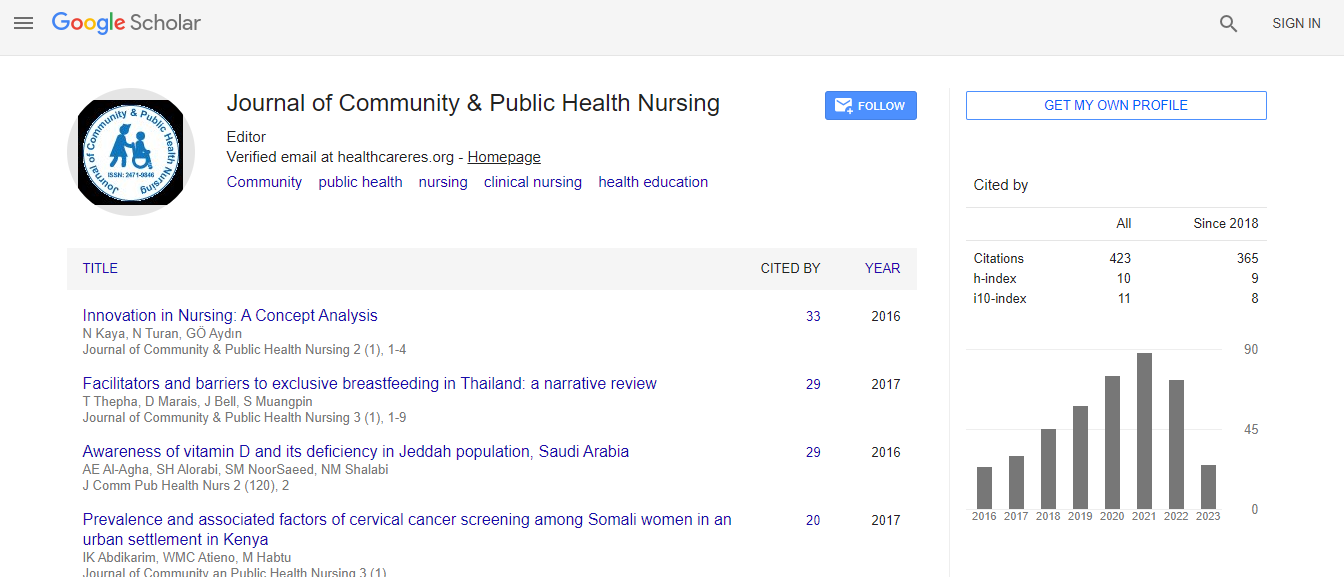Research Article
Contraceptive Use and Family Size Preferences among Married Women of Reproductive Age in Jimma Arjo District of Eastern Wellega Zone in Oromia, Ethiopia
Tadele Amente1*, Tariku Tesfaye1 and Mesfin Addise21Department of Nursing and Midwifery, College of Medical and Health Sciences, Wollega University, Nekemte, Oromia, Ethiopia
2School of Public Health, College of Medical and Health Science, Addis Ababa University, Addis Ababa, Ethiopia
- Corresponding Author:
- Amente T
Wollega University
Nekemte Town
Western Ethiopia
Tel: +251910119548
E-mail: amentetadele7@gmail.com
Received date: November 03, 2016; Accepted date: February 15, 2017; Published date: February 23, 2017
Citation: Amente T, Tesfaye T, Addise M (2017) Contraceptive Use and Family Size Preferences among Married Women of Reproductive Age in Jimma Arjo District of Eastern Wellega Zone in Oromia, Ethiopia. J Comm Pub Health Nurs 3:179. doi:10.4172/2471-9846.1000179
Copyright: © 2017 Amente T, et al. This is an open-access article distributed under the terms of the Creative Commons Attribution License, which permits unrestricted use, distribution, and reproduction in any medium, provided the original author and source are credited
Abstract
Background: Ethiopia is one of Sub-Saharan Africa countries in which high fertility (5.4 births per woman) is observed. Family planning programs have always been considered as the interventions of choice for slowing population growth and family size preference is useful in suggesting its demand.
Objective: The objective of this study was to assess contraceptive use and family size preferences among currently married women of reproductive age in Jimma Arjo district.
Methods: Community based cross sectional study design was conducted from January to February 2011. A total of five kebeles were selected by lottery method from 22 kebeles in Jimma Arjo district, Oromia, Ethiopia and a total of 475 married women were interviewed using systematic random sampling technique.
Results: The result indicated that 57.1% of married women were using modern contraceptive methods. Average number of children a woman had during the survey excluding current pregnancy was 3.8. In the logistic regression, women of age 35-49 years (AOR: 5.54 (1.8-17.04), 95% CI) and women who have had at least one child death (OR 0.45 (0.3-0.67) 95% CI) were determinant factors for limiting child birth.
Conclusion: The use of long acting and permanent methods was seen to be very low and women those desired to limit child bearing in this study area are lower compared to other studies. As a result, any program aimed at promoting family planning in this area should look for ways and means of reducing the intension of having many children.

 Spanish
Spanish  Chinese
Chinese  Russian
Russian  German
German  French
French  Japanese
Japanese  Portuguese
Portuguese  Hindi
Hindi 
